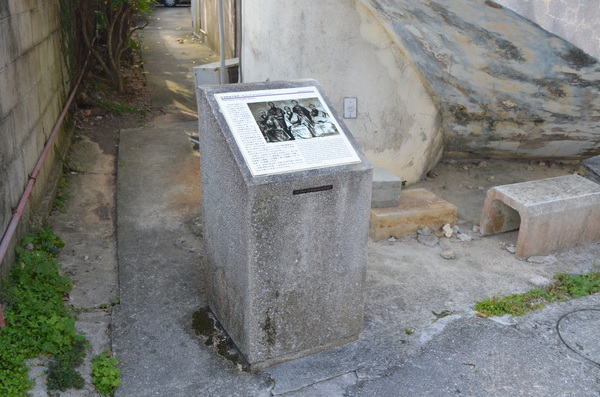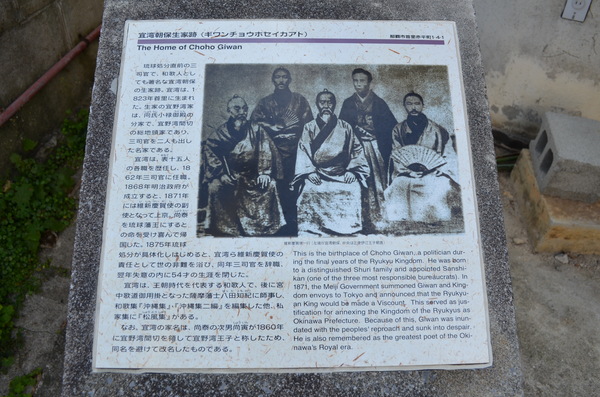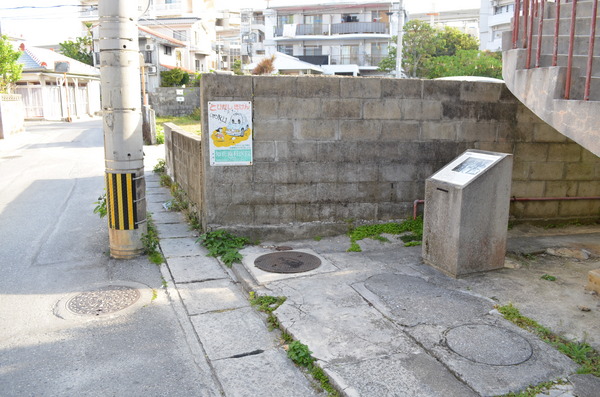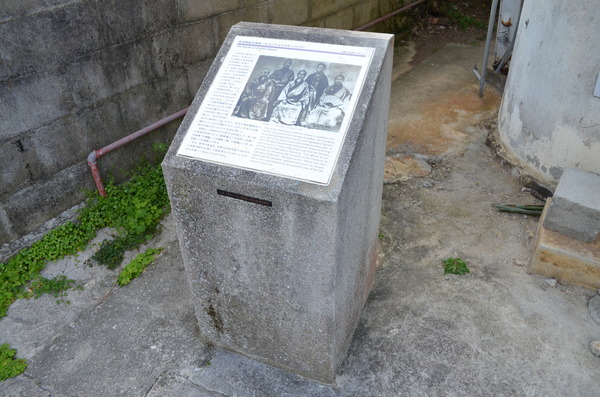The birthplace of Choho Giwan
History





This is the birthplace of Choho Giwan, a politician during the years of the Ryukyu Kingdom. He was born to a distinguished Shuri family and appointed Sanshikan (one of the three most responsible bureaucrats).
Basic information
- Address
- 903-0811 1-4-1 Akahira-cho Shuri Naha Okinawa In front of the Akahira mansion
- Business hours
- Nothing in particular
- Close day
- Nothing in particular
- Charge
- Free
- Parking
- None
- Access information
- A 7-8 minute walk from the monorail Gibo Station.
Additional Information
- Academic information
- This is the birthplace of Choho Giwan, a politician who served on the Council of Three (Sanshikan) just before the annexation of the Ryukyu Kingdom. He was also a renowned waka poet.
Giwan was born in Shuri in 1823. He was born into the Giwan family, which was a distinguished family that was a branch of the Sho-uji Oroku Udun. They were also the General Lord Manor House of the Ginowan Magiri, and two people from this distinguished family held a position on the Council of Three (Sanshikan). Giwan held various famous positions on the List of Fifteen (Omote Jugonin), and was appointed to the Council of Three (Sanshikan) in 1862. With the start of the Meiji government in 1868, he went to Tokyo in 1871 when he became the Vice envoy (Fukushi) for the Keiga Restoration envoy (Ishinkeigashi). He was given orders that King Sho Tai was to be made the king of the Ryukyu-han (Domain) and he happily returned home.
In 1875, when the annexation of the Ryukyu Kingdom began to come into effect, Giwan and the rest of the Keiga Restoration envoy (Ishinkeigashi), having to take responsibility for it were criticized by everyone. The same year, he resigned from the Council of Three (Sanshikan), and the following year, brokenhearted, his life came to an end at the age of 54. Giwan was a representative waka poet of the Ryukyu Kingdom era. He also studied under the Satsuma samurai Tomonori Hatta, who later went on to become a patron of Tanka in the Imperial court, and there is an anthology of Waka poetry, including the Waka-shu (collection) “Okinawa-shu (collection),” and “Okinawa-shu Ni-hen (collection, second edition),” that he edited, as well as “Matsukaze-shu (collection).” In addition, the Giwan house name was changed to avoid having the same name as King Sho Tai’s second son, who in 1860 was assigned to the Ginowan Magiri and referred to as Prince Ginowan.
